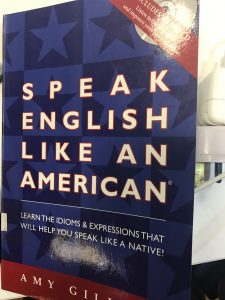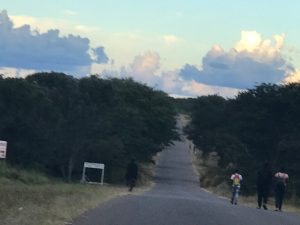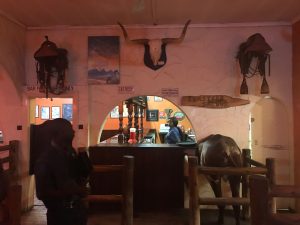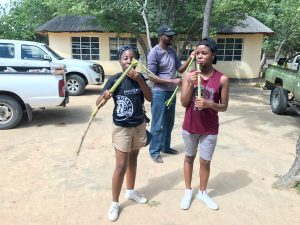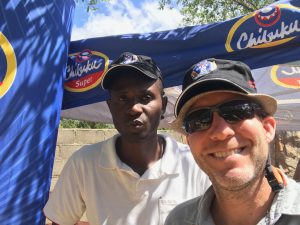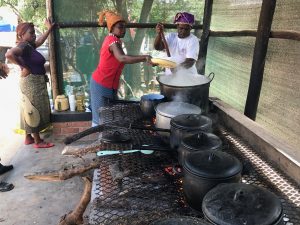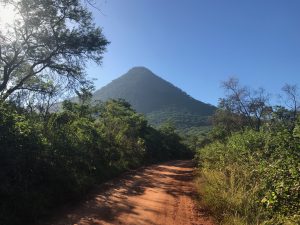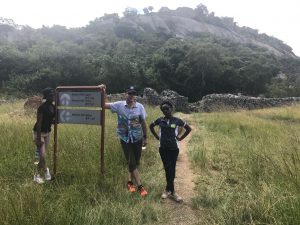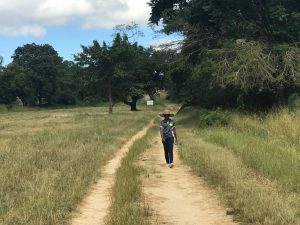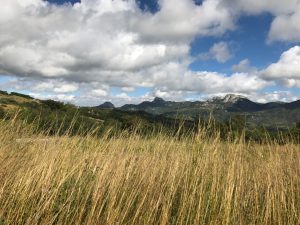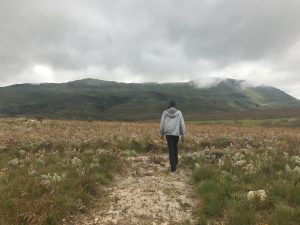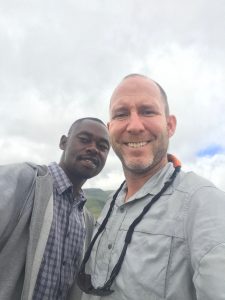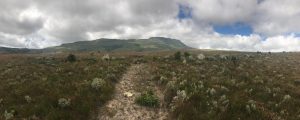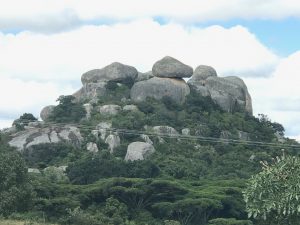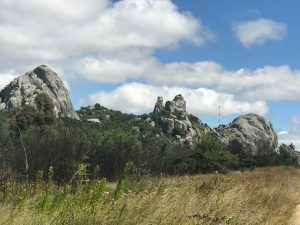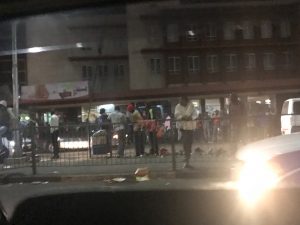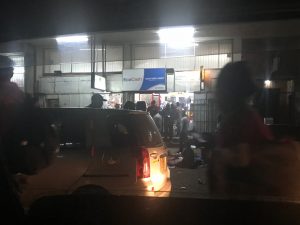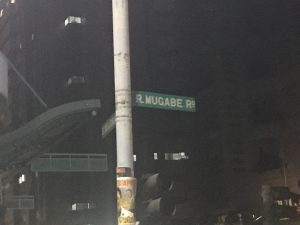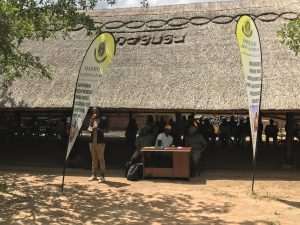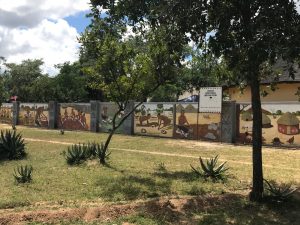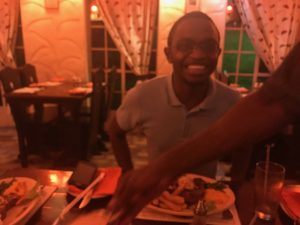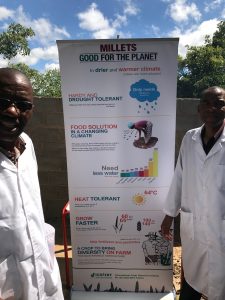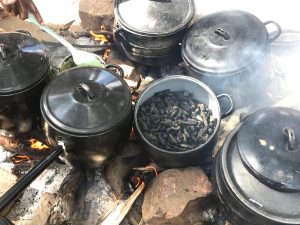Discovering Mugabe’s legacy in Zimbabwe
Discover Mugabe’s Legacy in Zimbabwe
Working with very inspiring and innovative entrepreneurs
Most Meaningful Experience: Traveling across Zimbabwe with friends and then, by bus and learning about what happened during the Mugabe Regime.
Top tips:
I wasn’t sure what awaited me in Harare. Mugabe was still in office but his wife had just announced she would be taking over if something happened to him. I was crossing my fingers that wouldn’t be while I was there.
The Robert Mugabe Airport in Harare seemed relatively normal, albeit a little small. I was greeted by my host, Irene, whose cheery smile immediately made me let my guard down. She had a sister in the U.S. (and was accustomed to the culture) and had set up meetings for me not only in Harare but also Bulawayo – a city that reminded me of the American West.
Driving through Harare felt like being in a ghost town. Much of the infrastructure had been built up and expanded decades ago, only to be left to deteriorate during the recent tumult. Symbolic of all this was the Sheraton – once the largest hotel in Africa, it was now a run-down haunt filled with dust where you could get a stale bologna sandwich.
The only places where there were people were the banks and grocery stores – long lines of hundreds hoping they could get their basic necessities. People would line up at banks 24 hours before they opened (which was once a week) to get cash and slept outside for days just to buy bread and milk. A savior had been the creation of mobile money, which allowed people to barter for goods knowing they might never get cash out. At night, the ghost town that was Harare by day transformed into a vibrant black market where everything from clothing to homewares was available.
Irene showed me all facets of Harare – from the decent hotel (for expats and white people) where I was staying to the poverty-ridden slums and impressive art galleries. We feasted on traditional Zimbabwean fish beneath a tent and attended an English class where locals were being taught the fineries of speaking like an American. I was impressed by the way Africans in the former British colonies spoke English, combined with sophisticated politeness, and soon found myself trying to replicate their accent.
Irene was excited about her work at a local incubator, predominantly working with women who ran clothing stores. We met with different entrepreneurs at both the incubator and a co-working space where I found the engineering capabilities to be much stronger than in other parts of Africa. Among the innovations was an e-commerce marketplace, a bitcoin app, insurance and shipping products.
I liked how “nuts and bolts” the Zimbabwean entrepreneurs were. There were clearly not as boisterous as their Zambian counterparts and because of the economic issues, they seemed to keep a pretty low profile. I almost felt as if no one really wanted to say too much about their companies or speak about their difficulties. It was clear that people had their hands tied behind their backs because of fear and were doing their best to solve the problems of day-to-day life.
From Harare, I took a bus to Bulawayo, passing neglected farms overrun with weeds that had been abandoned after the white farmers had been pushed out. Lindelwe picked me up and we chatted about the Techvillage where she worked. She was about five foot, shy and curious about my story – why was I here and what could I teach. She wasn’t familiar with the U.S.and had never left Zimbabwe but was grateful of the consulate’s support for their startup scene.
I spent a few days in the office prepping for sessions, with around 20 people showing up. One young student, Mthbisis, was keen to attend a maker’s tech fair at Berkeley, explaining that he had to raise $20,000 and get a sponsor to make the trip. He was a coder and developing an application for ebooks, so I pointed him in the direction of Scribd. About a year later, he created a GoFundMe page and raised half the money required, with the maker’s fair donating the rest. He made it to Berkeley for a few weeks, thanks to his sheer determination and perseverance in making this experience happen.
From Bulawayo, I headed east, staying in an Airbnb run by an elderly couple who’d had their farm and all its equipment seized a few years ago. They’d stayed in Zimbabwe with the hope of things changing after Mugabe but remained uncertain. Many people had been killed during the tumult and the farms were taken over by people who lacked any agricultural training – the results had been devastating for Zimbabwean society.
I continued to the mysterious Zimbabwe highlands of Nyanga, a national park that encompassed rugged mountains and sparkling lakes near the border with Mozambique. I was warned on arrival that I needed to take a guide as people frequently disappeared or became stranded at night. Just recently, someone had disappeared swimming in the lake after being attacked by a mermaid. Another group had disappeared in the mountains, with local spirits believed to be the culprits.
I was spooked but emboldened by the confidence of my driver, so we headed into the vast wilderness where mountains undulated as far as the eye can see. The roads were heavily deteriorated, which made me uneasy in our compact car – I certainly didn’t want to break down in the middle of this place!
As we hiked into the mountains, you could feel the energy of the place, with a hovering fog as if people knew we were here. My driver explained that wars had been fought in these mountains and the spirits of the deceased roamed free. We both stopped to meditate at this moment. The spirituality was real. Profound. He told me about a lake that turns to blood on the other side of the mountain where some people jump to their death. Did I want to see it? I said I’d pass.
As I rode the bus back to Harare reflecting on my experiences, we came to a halt as a commotion rang outside. I looked down to see a kid with his leg torn off and another at 90 degrees amidst a pool of blood. His motorbike lay beside. I threw up in my mouth, put my music on and went back into my world. The world of a tourist observing from the inside where it was safe, protected from the turmoil of the outside reality. A privileged life where I could merely watch, like a TV show, with no answers. No solutions.
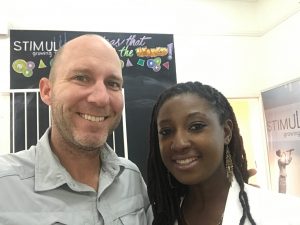
Teaching with Irene
